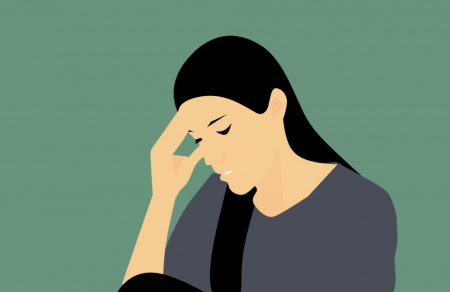Self medication theory is the idea that people use substances or gratifying behaviours to treat underlying problems without the advice of and without following a prescription from a licensed healthcare professional.
Rehab Costs & Options for Alcohol | Drugs | Other addictions
As Dr. Elizabeth Hartney describes in an article for Very Well Mind, self-medication theory can apply to substance misuse disorders as well as behavioral addictions such as gambling, compulsive shopping, and eating disorders.
Self medication is one of the most common paths to addiction.
Why Do People Self-Medicate?
There are a number of reasons people self-medicate. Sometimes the user isn’t consciously aware that they are self-medicating. They turn to a substance such as alcohol because it makes them feel happier, or they use a drug like cocaine because it artificially elevates their mood for a short time.
Other times, people use alcohol, drugs, and behaviors to self medicate to treat a variety of conditions:
- Self medication for depression, loneliness, stress, and anxiety
- Self medication for PTSD (post-tramautic stress disorder)
- Self medication to reduce pain and symptoms from illnesses and disease
- Self medication for sleep disorders like insomnia, restlessness, or fatigue
In 2019, LifeSearch released the results of a survey that estimates that 45% of British adults currently use alcohol, drugs and other coping mechanisms to self medicate, and 60% say they have done so in the past. That’s 24 million Britons who may use some form of self medication to cope with mental health symptoms.
What Do People Use to Self Medicate?
Men and women use or have used the following substances or behaviors to self medicate, according to the LifeSearch study:
- Alcohol: 37% of men and 40% of women
- Over-the-counter medication: 23% of men and 26% of women
- Illegal drugs: 18% of men and women
- Over-exercising: 26% of men and 29% of women
- Gambling: 21% of men and 17% of women
- Sex: 31% of men and women
- Shopping: 31% of men and 53% of women
- Food: 33% of men and 61% of women
You probably noted that the percentages above add up to well over 100% — that’s because it’s not uncommon for people to use combinations of two or more substances and behaviours to self medicate.
A lot of people ask us why people choose to self medicate, rather than seek the help of a doctor, therapist, or other licensed healthcare provider. People choose to drink alcohol, for example, to self medicate because they are embarrassed to admit they have a problem, they lack the funds to pay for treatment, or it’s simply easier to pour a drink than it is to visit a doctor.
When asked about drivers behind self medicating behaviours, the LifeSciences survey found that respondents said they didn’t have anyone to talk to about their issues or they didn’t feel comfortable talking about them to anyone.
Types of Self Medication
Self medication typically comes from three sources:
- Legal substances, such as alcohol, nicotine, and caffeine
- Controlled substances, as in prescription medications
- Illegal substances, such as methamphetamine, heroin, and marijuana
Advantages of self medication with alcohol
If you searched Google for “advantages of self medicating with alcohol and drugs” and it delivered you to our website, we are glad you are here. We will disappoint you, however, when we say: There are no advantages to using alcohol to self medicate.
Certainly there are some people who can have a few ounces of wine, beer, or spirits to relax and unwind after a hard day at work. But the danger of this type of self medication is it can become a habit and you may experience signs of alcohol and drug addiction.
Disadvantages of self medication
Self medication and drug and alcohol misuse can lead to addiction. Alcohol itself is a depressant, so while you may feel momentarily relieved of stress, sadness, anger, or other emotions, alcohol is known to worsen depression.
Other risks that come from self medicating with alcohol (or any substance): masking symptoms of serious illnesses or conditions, adverse reactions with prescribed medications,
5 Signs You May Be Self Medicating with Alcohol for Depression
If you agree with one or more of the following signs, let us know. Talk to a therapist at our call-back service, or keep reading our resources about alcohol misuse and how it affects you.
- When you feel stressed, depressed, lonely, angry, anxious or uncomfortable, you turn to alcohol because it makes you feel better.
- You’ve recently experienced a triggering event, such as a job loss, death of a loved one, or divorce and you’ve increased your alcohol use.
- You actually feel worse while you drink or after you’ve been drinking.
- You feel anxious when you don’t have immediate access to alcohol.
- Your problems don’t go away and get worse, whether they are work-related, financial, relationship-related, or related to your health.
- You isolate from others and don’t do activities that you once enjoyed.
- You lie about how much you drink, or you become secretive and hide your alcohol.
- When you don’t drink, you experience withdrawal symptoms, such as shakiness, nausea, sweats, and other drug and alcohol withdrawal symptoms.
- Other people have expressed concerns about your drinking.
When to Seek Professional Help
Castle Craig offers a residential treatment programme. We specialise in treating people who suffer from alcohol and other addictions, many of whom have complex illnesses or conditions, which led to self medication and, ultimately, addiction.
If you’ve been self medicating and reading this article, chances are you’re more ready than you realise to seek help. Explore our alcohol addiction treatment programme and at any time, reach out to our specialists by phone or email. You may reach our 24-hour drug addiction help-line specialists at +44-844-740-1394 or email us at info@castlecraig.co.uk with questions, comments, or concerns. We’re here for you.


